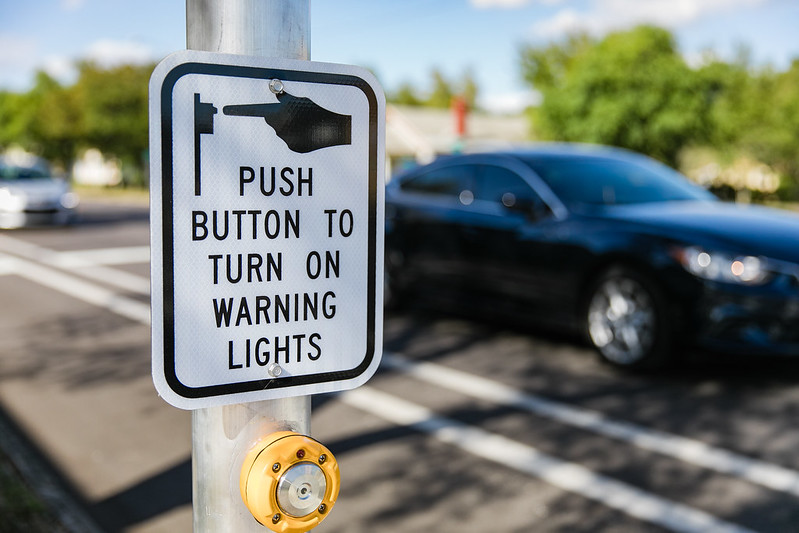
Photo: CityofStPete
Chicago loses case over pedestrian signals for the visually impaired
14 April 2023
by Christopher Carey
A federal judge has ruled that the City of Chicago violated the Americans with Disabilities Act by failing to install signals at most pedestrian crossings that help people who are visually impaired navigate streets and reach their destinations safely.
US District Judge Elaine Bucklo ruled that the city’s lack of accessible pedestrian signals (APS) was discriminatory because it deprived visually impaired people of “meaningful access” to public benefits guaranteed by the act.
Just 0.5 percent of signalised intersections in Chicago provide accessible pedestrian signals for the blind, according to Disability Rights Advocates (DRA), a non-profit that filed a suit against the city in 2019.
“We are thrilled the court recognised that blind pedestrians have the right to cross streets with the benefit of the same critical public safety information as sighted pedestrians,” said Jelena Kolic, Senior Staff Attorney at Disability Rights Advocates.
“Chicago has long been famous for its walkability – thanks to this decision, blind residents will be much better equipped to enjoy that walkability.”
Ruling
The judgment was issued in response to a lawsuit brought in 2019 by Disability Rights Advocates on behalf of the American Council of the Blind of Metropolitan Chicago and three visually impaired individuals.
The city defended itself in court by claiming it planned to install more accessible pedestrian signals at some of its 2,800 signalised intersections.
But the judge rejected this defence, saying the city had installed less than 40 of the 100 signals it had promised to put in place by 2021.
A spokesperson from the City of Chicago told Cities Today “the city does not comment on ongoing litigation”, but said that it “fully recognises the importance of APS”.
“The pace of installing APS is impacted by the configuration, complexity, and current conditions of the intersection, in addition to long lead times on materials and supply chain challenges,” the spokesperson added.
“Chicago Department of Transportation (CDOT) currently has over 150 intersections where APS is either under construction, in design, or in procurement.”
According to Disability Rights Advocates, the city must, as a result of the decision, install APS when building or modernising an intersection’s pedestrian signals.
The group praised the decision, claiming it would “reshape Chicago’s pedestrian infrastructure and lead to historic accessibility improvements for all residents.”
Image: CityofStPete










